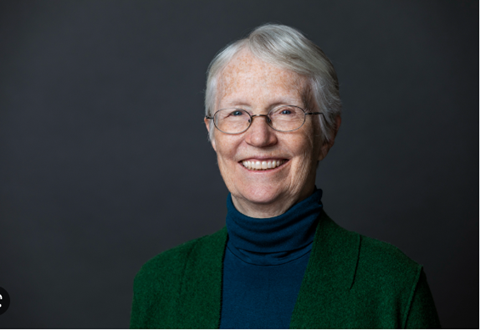A collaborative and unified approach is key to mitigating climate change, NASA’s Cynthia Rosenzweig tells Oxford Farming Conference

Climate change is the most significant environmental challenge of our time – and the issue now is urgent collaboration.
So said NASA’s Cynthia Rosenzweig, 2022 World Food Prize winner for her work assessing climate change’s threat to agriculture, addressing Oxford Farming Conference delegates today (5 January) via a pre-recorded message.
The head of the Climate Impacts Group at New York’s NASA Goddard Institute for Space Studies said the world’s rising surface temperatures and extreme climatic events, such as last year’s hurricane Ian, threaten future global food security.
“Climate change is happening now,” Rosenzweig said. “So, what do we need to do? We need to radically collaborate.”
Citing the example of AgMIP, a global network of over 1,000 agriculture, climate and food researchers, Rosenzweig outlined a number of projects and tools the group has developed in a bid to provide science-based solutions to help countries around the world respond to climate change challenges and secure local food.
“We go out and consult with farming groups and regions and national planners,” she told Oxford Farming Conference delegates. “We are focused on farming systems, not just the crops, but the whole mixture.”
AgMIP looks at development pathways using tools like enhanced remote sensing, geo-spatial and AI modelling before scaling them out ’on the ground’, she explained.
“We break down silos to create policies and programmes to work on mitigation and adaptation at the same time,” said Rosenzweig. “For example, we have pilot programmes in Asia on alternative ways of producing rice because rice is a powerful emitter of methane.”
Rosenzweig closed her Oxford Farming Conference session, the Frank Parkinson Lecture sponsored by the Frank Parkinson Agricultural Trust, by outlining three ways forward to mitigate climate change.
“We need to take a food system approach that links climate system, ecosystems, nutrition and sustainable development pathways to achieve healthy food and a healthy planet,” she said.
“Keep a laser focus on climate change solutions for food system stakeholders, with integrated focus on mitigation, adaptation and sustainability; and conduct racially-cooperative, multi-scale assessments of solutions, including resilience to climate disasters.”
Rosenzweig concluded by appealing to the audience to think about larger-scale climate change solutions.
The 77th annual Oxford Farming Conference took place on 4-6 January in Oxford, UK.



